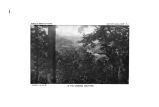| OCR Text |
Show MOONSYJ GENERAL WOOL'S REPORTS- 1837 127 The delegation taken to Washington by Mr. Schermerhorn had no more authority to make a treaty than any other dozen Cherokee accidentally picked up for the purpose. I now warn you and the President that if this paper of Schermerhorn's called a treaty is sent to the Senate and ratified you will bring trouble upon the government and eventually destroy this [ the Cherokee] Nation. The Cherokee are a peaceable, harmless people, but you may drive them to desperation, and this treaty can not be carried into effect except by the strong arm of force. 1 General Wool, who had been placed in command of the troops concentrated in the Cherokee country to prevent opposition to the enforcement of the treaty, reported on February 18, 1837, that he had called them together and made them an address, but " it is, however, vain to talk to a people almost universally opposed to the treaty and who maintain that they never made such a treaty. So determined are they in their opposition that not one of all those who were present and voted at the council held but a day or two since, however poor or destitute, would receive either rations or clothing from the United States lest they might compromise themselves in regard to the treaty. These same people, as well as those in the mountains of North Carolina, during the summer past, preferred living upon the roots and sap of trees rather than receive provisions from the United States, and thousands, as I have been informed, had no other food for weeks. Many have said they will die before they will leave the country." 2 Other letters from General Wool while engaged in the work of disarming and overawing the Cherokee show how very disagreeable that duty was to him and how strongly his sympathies - were with the Indians, who were practically unanimous in repudiating the treaty. In one letter he says: The whole scene since I have been in this country has been nothing but a heartrending one, and such a one as I would be glad to get- rid of as soon as circumstances will permit. Because I am firm and decided, do not believe I would be unjust. If I could, and I could not do them a greater kindness, I would remove every- Indian to- morrow beyond the reach of the white men, who, like vultures, are watching, ready to pounce upon their prey and strip them of everything they have or expect from the government of the United States. Yes, sir, nineteen- twentieths, if not ninety- nine out of every hundred, will go penniless to the West. 8 How it was to be brought about is explained in part by a letter addressed to the President by Major Ridge himself, the principal signer of the treaty: We now come to address you on the subject of our griefs and afflictions from the acts of the white people. They have got our lands and now they are preparing to fleece us of the money accruing from the treaty. We found our plantations taken either in whole or in part by the Georgians- suits instituted against us for back rents for our own farms. These suits are commenced in the inferior courts, with the * Quoted by Royce, Cherokee Nation, op. cit., pp. 284- 285; quoted also, with some verbal differences, by Everett, speech In House of Representatives on May 81,1838. sQuoted in Royce, op. cit., p. 286. 9 Letter of General Wool, September 10,1836, in Everett, speech in House of Representatives, May 81,1838. |































































































































































































































































































































































































































